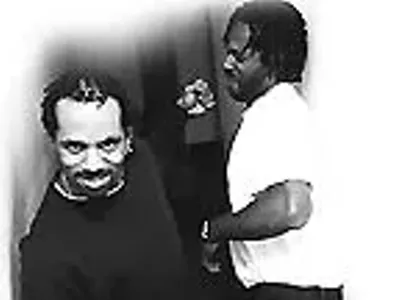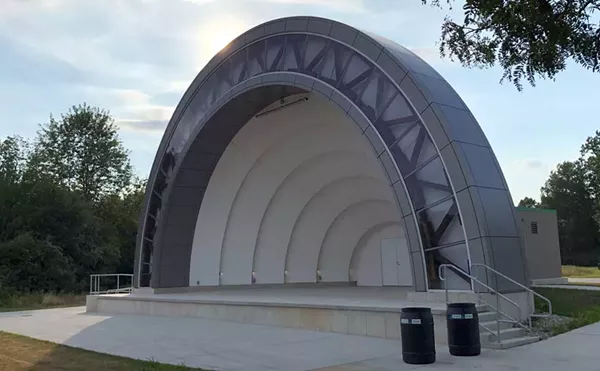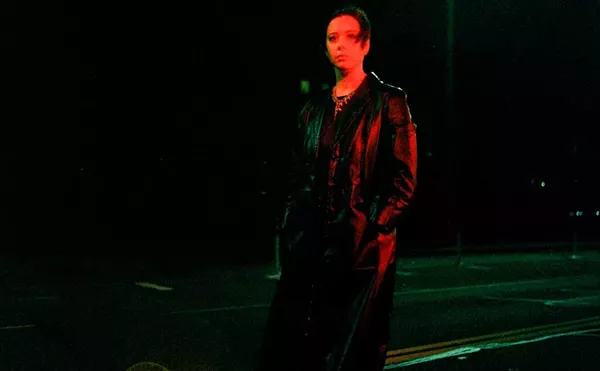
Audio By Carbonatix
[
{
"name": "GPT - Leaderboard - Inline - Content",
"component": "35519556",
"insertPoint": "5th",
"startingPoint": "3",
"requiredCountToDisplay": "3",
"maxInsertions": 100,
"adList": [
{
"adPreset": "LeaderboardInline"
}
]
}
]
Begun in 1967 by George Wilson, a professor -- now retired -- at the School of Music, the Contemporary Directions Ensemble has provided the curious and the courageous with steady New Musical nourishment ever since. "It's really for the adventurous person, for someone to hear and experience something outside their usual frame of reference," says H. Robert Reynolds, the Director of Bands at U of M, and the Ensemble's director for the last seven years. "And it's played by some of the best musicians at the University," he adds.
When asked for highlights of the Ensemble's history, Reynolds hesitates, because there's so much to consider: "Henryk Górecki ... John Harbison ... Jacob Druckman -- visiting composers are always a highlight of the series." He's referring to your average New Music-lover's one in a million chance to hear the works of modern masters performed in the authors' presence.
"The other highlight is ongoing, because U of M has had some of the best new composers on its faculty: William Bolcom, Evan Chambers, Michael Dougherty, Bright Sheng, the late William Albright, ..." whose works also appear regularly on Ensemble programs.
The experience of a Contemporary Directions Ensemble concert is a bit like going to a sonic temple. As you walk up the stairs to Ann Arbor's Rackham Auditorium, there are just a few other devotees taking the same path. Inside, an acoustically perfect space which seats 1,100 is occupied by a mere hundred or so. But you pick up a sheet from the pile of carefully prepared program notes and settle into any ideal seat you want. Soon, the stunning music, the committed musicianship, the focus and breathless excitement of the players let you know you're in a rare place.
On December 5, the Ensemble will present a concert of prize-winning composers, selected and conducted by James R. Tapia, assistant Director of Bands. Included will be two works by John Corigliano -- "Fanfare to Music" (for brass ensemble) and "How Like Pellucide Statues, Daddy" (for four bassoons) -- as well as Air for Cello and Piano by Aaron Kernis, 1998 winner of the Pulitzer Prize for composition. Leslie Bassett's "Pierrot Songs" and George Perle's Concertino for Piano, Wind and Timpani round out the program.
As we finish our conversation, Reynolds drops a small bombshell with news of the Ensemble's February 5 and 6 concerts, featuring the works of George Crumb, a U of M graduate and one of America's most renowned experimental composers. Crumb will be the School of Music's guest in celebration of his 70th birthday.
The Contemporary Directions Ensemble may sound like a gourmet diner in a landscape of musical hamburger stands. But as you walk over to save your fancy from starvation, just remember: It's always free of charge. George Tysh is the Metro Times arts editor. E-mail him at gtysh@metrotimes.com





